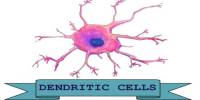Clinical pathology is a branch of medicine that involves the laboratory analysis of bodily fluids, tissues, and cells in order to diagnose and monitor disease. It is concerned with disease diagnosis based on laboratory analysis of bodily fluids such as blood, urine, and tissue homogenates or extracts using chemistry, microbiology, hematology, molecular pathology, and immunohaematology tools. It includes a wide range of laboratory tests and techniques that provide vital information for the diagnosis, treatment, and prevention of a variety of medical conditions. A medical residency is required for this specialty.
Clinical pathology is a term used in the United States, the United Kingdom, Ireland, many Commonwealth countries, Portugal, Brazil, Italy, Japan, and Peru; countries using the equivalent in their native language of “laboratory medicine” include Austria, Germany, Romania, Poland, and other Eastern European countries; other terms include “clinical analysis” (Spain) and “clinical/medical biology” (France, Belgium, the Netherlands, North and West Africa). Clinical pathologists are healthcare professionals who perform and interpret laboratory tests. They are also known as clinical laboratory scientists or clinical laboratory technologists.
Key aspects of clinical pathology include:
- Hematology: This branch investigates blood and blood-forming tissues. Complete blood count (CBC), blood smears, coagulation studies, and blood typing are all common tests.
- Clinical Chemistry: This field examines the levels of various chemicals and substances in blood and other bodily fluids. Blood glucose, cholesterol, electrolytes, liver function tests, and kidney function tests are among the tests performed.
- Microbiology: Microorganisms such as bacteria, viruses, fungi, and parasites are studied by clinical microbiologists. To identify and characterize infectious agents, they may use cultures, sensitivity testing, and molecular diagnostics.
- Immunology: This field focuses on the body’s immune system and its response to diseases. Tests include those for autoimmune disorders, allergies, and the measurement of specific antibodies.
- Serology: Serologic tests examine serum (a component of blood) for the presence of antibodies, antigens, or other substances. This is commonly used for testing infectious diseases.
- Molecular Pathology: This field investigates genetic and molecular changes in cells. PCR (polymerase chain reaction) and DNA sequencing are molecular tests used to detect genetic mutations, infectious agents, and other molecular abnormalities.
Clinical pathologists work in a variety of settings, including hospitals, clinics, reference laboratories, and research institutions. Their findings are critical in guiding clinicians in patient diagnosis and management. Clinical pathology’s integration with other medical disciplines contributes significantly to comprehensive patient care.
















